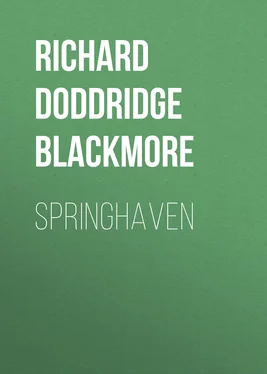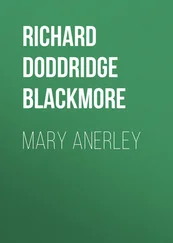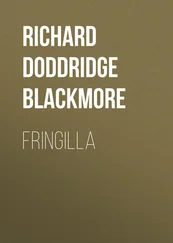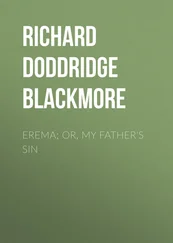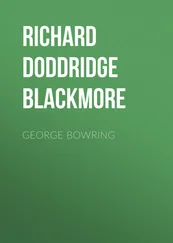Richard Doddridge Blackmore - Springhaven
Здесь есть возможность читать онлайн «Richard Doddridge Blackmore - Springhaven» — ознакомительный отрывок электронной книги совершенно бесплатно, а после прочтения отрывка купить полную версию. В некоторых случаях можно слушать аудио, скачать через торрент в формате fb2 и присутствует краткое содержание. Жанр: foreign_prose, История, foreign_edu, foreign_antique, на английском языке. Описание произведения, (предисловие) а так же отзывы посетителей доступны на портале библиотеки ЛибКат.
- Название:Springhaven
- Автор:
- Жанр:
- Год:неизвестен
- ISBN:нет данных
- Рейтинг книги:3 / 5. Голосов: 1
-
Избранное:Добавить в избранное
- Отзывы:
-
Ваша оценка:
- 60
- 1
- 2
- 3
- 4
- 5
Springhaven: краткое содержание, описание и аннотация
Предлагаем к чтению аннотацию, описание, краткое содержание или предисловие (зависит от того, что написал сам автор книги «Springhaven»). Если вы не нашли необходимую информацию о книге — напишите в комментариях, мы постараемся отыскать её.
Springhaven — читать онлайн ознакомительный отрывок
Ниже представлен текст книги, разбитый по страницам. Система сохранения места последней прочитанной страницы, позволяет с удобством читать онлайн бесплатно книгу «Springhaven», без необходимости каждый раз заново искать на чём Вы остановились. Поставьте закладку, и сможете в любой момент перейти на страницу, на которой закончили чтение.
Интервал:
Закладка:
“Come, now, Harry!” “Oh, we can’t stand that!” “We’ll see you to your door, lad, if you out with it, fair and forcible.”
Of these and other exhortations Harry took no notice, but folded his arms across his breast, and gazed at something which his mind presented.
“Harry Shanks, you will have the manners”—Captain Tugwell spoke impressively, not for his own sake, for he knew the tale, and had been consulted about it, but from sense of public dignity—“to finish the story which you began. To begin a yarn of your own accord, and then drop it all of a heap, is not respectful to present company. Springhaven never did allow such tricks, and will not put up with them from any young fellow. If your meaning was to drop it, you should never have begun.”
Glasses and even pipes rang sharply upon the old oak table in applause of this British sentiment, and the young man, with a sheepish look, submitted to the voice of the public.
“Well, then, all of you know where the big yew-tree stands, at the break of the hill about half a mile inland, and how black it looms among the other stuff. But Bob, with his sweetheart in his head, no doubt, was that full of courage that he forgot all about the old tree, and the murder done inside it a hundred and twenty years ago, they say, until there it was, over his head a’most, with the gaps in it staring like ribs at him. ‘Bout ship was the word, pretty sharp, you may be sure, when he come to his wits consarning it, and the purse of his lips, as was whistling a jig, went as dry as a bag with the bottom out. Through the grey of the night there was sounds coming to him, such as had no right to be in the air, and a sort of a shiver laid hold of his heart, like a cold hand flung over his shoulder. As hard as he could lay foot to the ground, away he went down hill, forgetting of his kneecap, for such was the condition of his mind and body.
“You must understand, mates, that he hadn’t seen nothing to skeer him, but only heard sounds, which come into his ears to make his hair rise; and his mind might have put into them more than there was, for the want of intarpreting. Perhaps this come across him, as soon as he felt at a better distance with his wind short; anyhow, he brought up again’ a piece of rock-stuff in a hollow of the ground, and begun to look skeerily backward. For a bit of a while there was nothing to distemper him, only the dark of the hill and the trees, and the grey light a-coming from the sea in front. But just as he were beginning for to call himself a fool, and to pick himself onto his legs for trudging home, he seed a thing as skeered him worse than ever, and fetched him flat upon his lower end.
“From the black of the yew-tree there burst a big light, brighter than a lighthouse or a blue thunder-bolt, and flying with a long streak down the hollow, just as if all the world was a-blazing. Three times it come, with three different colours, first blue, and then white, and then red as new blood; and poor Bob was in a condition of mind must be seen before saying more of it. If he had been brought up to follow the sea, instead of the shoemaking, maybe his wits would have been more about him, and the narves of his symptom more ship-shape. But it never was borne into his mind whatever, to keep a lookout upon the offing, nor even to lie snug in the ferns and watch the yew-tree. All he was up for was to make all sail, the moment his sticks would carry it; and he feared to go nigh his sweetheart any more, till she took up with another fellow.”
“And sarve him quite right,” was the judgment of the room, in high fettle with hot rum and water; “to be skeered of his life by a smuggler’s signal! Eh, Cappen Zebedee, you know that were it?”
But the captain of Springhaven shook his head.
CHAPTER XIII
WHENCE, AND WHEREFORE?
At the rectory, too, ere the end of that week, there was no little shaking of heads almost as wise as Zebedee Tugwell’s. Mrs. Twemlow, though nearly sixty years of age, and acquainted with many a sorrow, was as lively and busy and notable as ever, and even more determined to be the mistress of the house. For by this time her daughter Eliza, beginning to be twenty-five years old—a job which takes some years in finishing—began at the same time to approve her birth by a vigorous aim at the mastery. For, as everybody said, Miss Eliza was a Carne in blood and breed and fibre. There was little of the Twemlow stock about her—for the Twemlows were mild and humorous—but plenty of the strength and dash and wildness and contemptuous spirit of the ancient Carnes.
Carne a carne, as Mr. Twemlow said, when his wife was inclined to be masterful—a derivation confirmed by the family motto, “Carne non caret carne.” In the case, however, of Mrs. Twemlow, age, affliction, experience, affection, and perhaps above all her good husband’s larger benevolence and placidity, had wrought a great change for the better, and made a nice old lady of her. She was tall and straight and slender still; and knew how to make the most, by grave attire and graceful attitude, of the bodily excellence entailed for ages on the lineage of Carne. Of moral goodness there had not been an equally strict settlement, at least in male heredity. So that Mrs. Twemlow’s thoughts about her kith and kindred were rather sad than proud, unless some ignorance was shown about them.
“Poor as I am,” said Mr. Twemlow, now consulting with her, “and poor as every beneficed clergyman must be, if this war returns, I would rather have lost a hundred pounds than have heard what you tell me, Maria.”
“My dear, I cannot quite see that,” his wife made thoughtful answer; “if he only had money to keep up the place, and clear off those nasty incumbrances, I should rejoice at his coming back to live where we have been for centuries.”
“My dear, you are too poetical, though the feeling is a fine one. Within the old walls there can scarcely be a room that has a sound floor to it. And as for the roof, when that thunder-storm was, and I took shelter with my pony—well, you know the state I came home in, and all my best clothes on for the Visitation. Luckily there seems to be no rheumatism in your family, Maria; and perhaps he is too young as yet to pay out for it till he gets older. But if he comes for business, and to see to the relics of his property, surely he might have a bedroom here, and come and go at his liking. After all his foreign fanglements, a course of quiet English life and the tone of English principles might be of the greatest use to him. He would never wish to see the Continent again.”
“It is not to be thought of,” said Mrs. Twemlow. “I would not have him to live in this house for fifty thousand pounds a year. You are a great deal wiser than I am, Joshua; but of his nature you know nothing, whereas I know it from his childhood. And Eliza is so strong-willed and stubborn—you dislike, of course, to hear me say it, but it is the fact—it is, my dear. And I would rather stand by our daughter’s grave than see her fall in love with Caryl Carne. You know what a handsome young man he must be now, and full of French style and frippery. I am sure it is most kind of you to desire to help my poor family; but you would rue the day, my dear, that brought him beneath our quiet roof. I have lost my only son, as it seems, by the will of the Lord, who afflicts us. But I will not lose my only daughter, by any such folly of my own.”
Tears rolled down Mrs. Twemlow’s cheeks as she spoke of her mysterious affliction; and her husband, who knew that she was not weak-minded, consoled her by sharing her sorrow.
“It shall be exactly as you like,” he said, after a quiet interval. “You say that no answer is needed; and there is no address to send one to. We shall hear of it, of course, when he takes possession, if, indeed, he is allowed to do so.”
Читать дальшеИнтервал:
Закладка:
Похожие книги на «Springhaven»
Представляем Вашему вниманию похожие книги на «Springhaven» списком для выбора. Мы отобрали схожую по названию и смыслу литературу в надежде предоставить читателям больше вариантов отыскать новые, интересные, ещё непрочитанные произведения.
Обсуждение, отзывы о книге «Springhaven» и просто собственные мнения читателей. Оставьте ваши комментарии, напишите, что Вы думаете о произведении, его смысле или главных героях. Укажите что конкретно понравилось, а что нет, и почему Вы так считаете.
